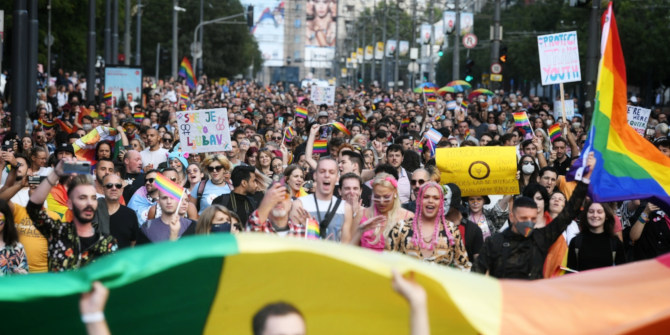LGBT Rights Progress and Nationalist Challenges in the Balkans
After the post-war period, Bosnia, Croatia, and Serbia made strides towards democracy and European integration. The visibility of sexual minorities increased, leading to improved legal protections for LGBT rights. However, nationalist forces viewed these rights as foreign threats to traditional identities, creating tensions.
Nationalist elites used "political homophobia" to maintain power by framing LGBT issues as a threat to the nation. Religious nationalism posed challenges in all three countries, with alliances between religious leaders and conservative parties hindering LGBT progress. Despite some advancements like anti-discrimination laws and Pride Parades, implementation remains weak.
Croatia emphasized its European identity and condemned attacks on the LGBT community. In contrast, Serbia's national identity was more exclusionary and framed homosexuality as a threat to the nation. Bosnia faced complexities due to competing ethnic identities and institutionalized ethno-nationalism.
While progress has been made over two decades, concerns about democratic backsliding persist due to nationalist influences. The region's future progress in LGBT rights hinges on overcoming nationalist obstacles through continued activism and international pressure.
Customize Summary
Rewrite with AI
Generate Citations
Translate Source
To Another Language
Generate MindMap
from source content
Visit Source
blogs.lse.ac.uk
LGBT rights in the Balkans: Assessing two decades of change and nationalist challenges
Key Insights Distilled From
by at blogs.lse.ac.uk 02-28-2023
https://blogs.lse.ac.uk/europpblog/2023/02/28/lgbt-rights-in-the-balkans-assessing-two-decades-of-change-and-nationalist-challenges/
Deeper Inquiries
